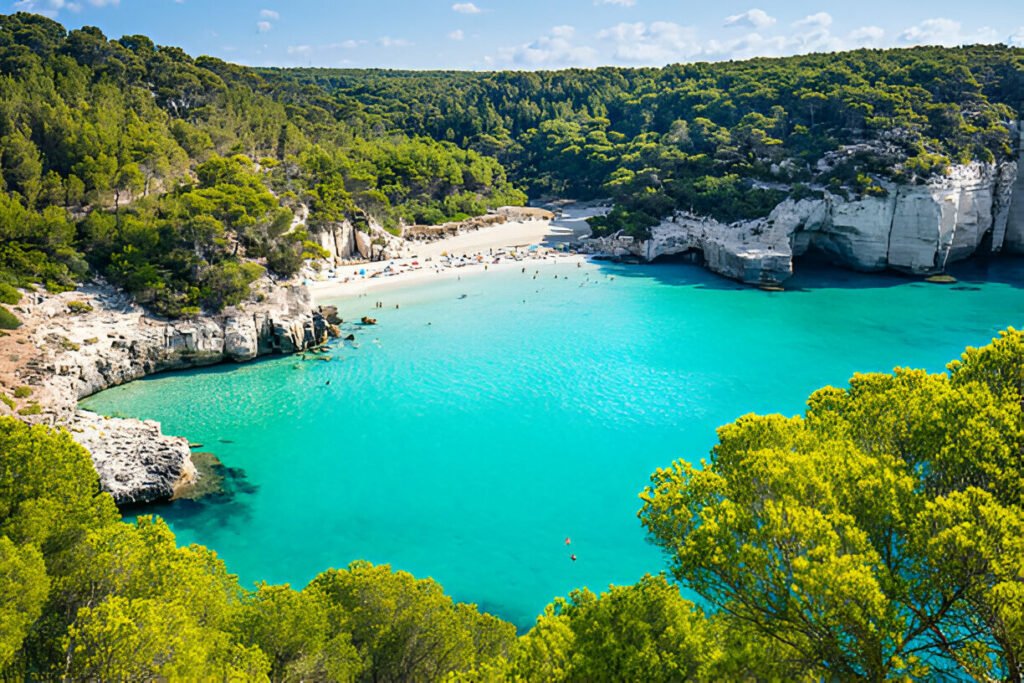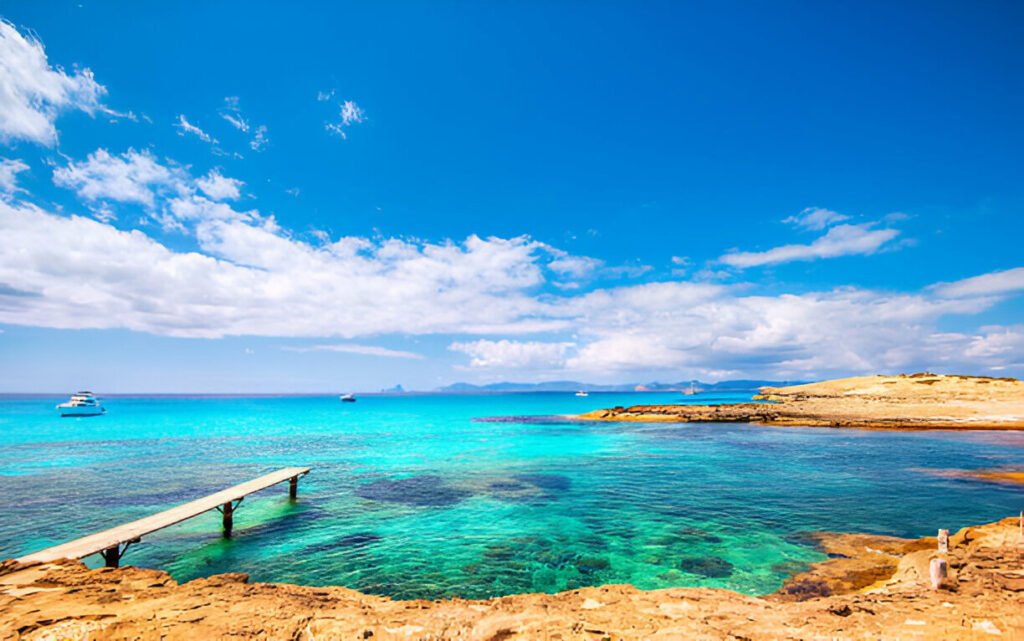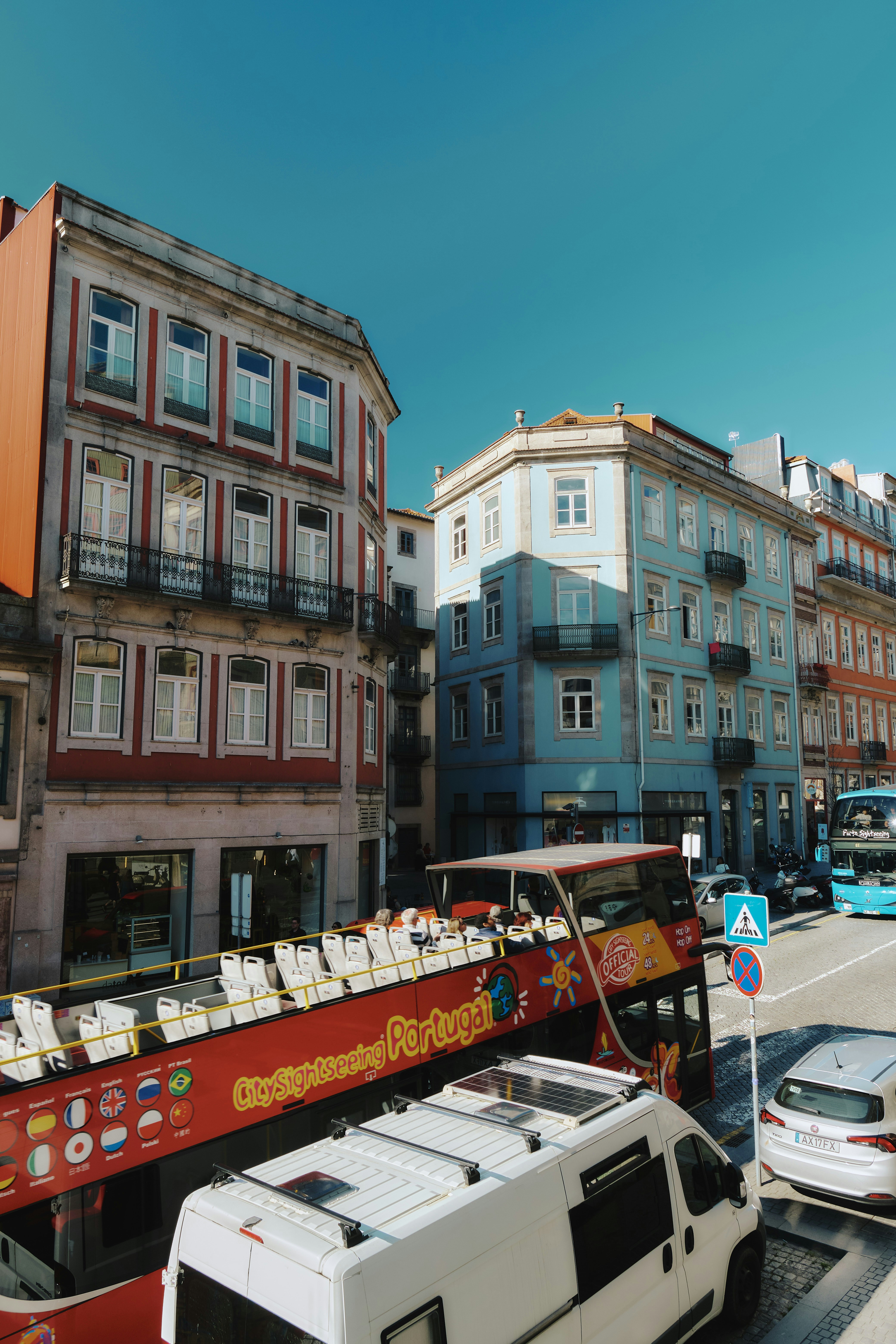Table of Contents

Solo travel can be an incredibly rewarding experience, offering freedom and self-discovery. Spain, with its rich culture, diverse landscapes, and vibrant cities, is an excellent destination for solo travelers. Here’s everything you need to know to make your solo adventure in Spain safe, enjoyable, and memorable.
Why Spain is Perfect for Solo Travelers
Spain is one of the most popular travel destinations in Europe, known for its friendly locals, diverse attractions, and vibrant culture. Its well-developed infrastructure and various travel options make it easy for solo travelers to navigate the country. Whether you’re interested in exploring historic cities, relaxing on beautiful beaches, or hiking through scenic landscapes, Spain has something to offer.
Spain’s varied regions each offer unique experiences, from the bustling streets of Madrid and Barcelona to the tranquil countryside of Andalusia and the stunning coastline of Costa Brava. The country’s efficient public transport system, including trains, buses, and domestic flights, allows for easy travel between these diverse destinations.
The Spanish are known for their warmth and hospitality, making it easy for solo travelers to feel welcome. English is widely spoken in tourist areas, which helps in navigating the country and making new friends. Locals are often willing to help with directions and recommendations.
Spain’s rich cultural heritage is reflected in its architecture, festivals, and cuisine. From the Moorish palaces of Granada to the modernist buildings of Gaudí in Barcelona, there is something for every interest. Festivals like La Tomatina and Feria de Abril offer unique cultural experiences that can make your trip unforgettable.
Affordability is another reason why Spain is ideal for solo travelers. Compared to other Western European countries, Spain offers great value for money. You can enjoy quality accommodations, dining, and activities without breaking the bank. Many attractions, such as museums and historical sites, offer discounts for students and young travelers.
Safety is paramount when traveling solo, and Spain is generally safe for tourists. The country’s low crime rate and high standard of living contribute to a sense of security for visitors. Solo travelers can explore cities and rural areas with confidence, knowing that Spain is a safe and welcoming destination.
Safety Tips for Solo Travelers
Staying safe is crucial for an enjoyable solo travel experience. While Spain is generally safe, it’s important to take common-sense precautions. Always be aware of your surroundings, especially in crowded places like markets, public transport, and tourist attractions. Keep an eye on your belongings to prevent pickpocketing.
Stay connected by keeping your phone charged and having a local SIM card. This allows you to use maps, apps, and emergency contacts easily. Make sure to share your travel itinerary with someone you trust and check in regularly. This can provide peace of mind for both you and your loved ones.
Blend in with the locals by dressing appropriately and avoiding flashy jewelry or expensive gadgets. This can help you avoid unwanted attention. It’s also wise to carry only the essentials when you’re out exploring. Leave your passport and extra cash in a secure place at your accommodation.
Learn basic Spanish phrases to help you communicate with locals. While many people speak English, knowing a few words in the local language can be helpful and appreciated. It can also make interactions smoother, whether you’re asking for directions or ordering food.
Use reputable transportation options. In cities, rely on official taxis, ride-sharing services, or public transport. If you’re renting a car, be aware of the local driving rules and conditions. It’s also advisable to avoid walking alone late at night, especially in unfamiliar areas.
Know the local emergency number, which is 112 in Spain. This number connects you to police, ambulance, and fire brigade services. Having this number saved in your phone and written down in your wallet can be crucial in case of emergencies. Additionally, familiarize yourself with the location of the nearest embassy or consulate of your home country.

Must-Visit Destinations
Spain is filled with must-visit destinations that are perfect for solo travelers. Madrid, the capital city, is known for its world-class museums, vibrant nightlife, and beautiful parks. Explore the Prado Museum, take a stroll in Retiro Park, and enjoy the lively atmosphere of Puerta del Sol and Plaza Mayor.
Barcelona, famous for its unique architecture and Mediterranean beaches, offers a mix of culture and relaxation. Don’t miss the Sagrada Familia, Park Güell, and the Gothic Quarter. Stroll along La Rambla and relax at the beach of Barceloneta.
Granada, located in Andalusia, is home to the stunning Alhambra Palace. This city combines Moorish history with vibrant Spanish culture. Explore the Albayzín neighborhood and enjoy a traditional flamenco show. The views from the Alhambra are breathtaking, especially at sunset.
Seville, also in Andalusia, is known for its beautiful architecture, including the Seville Cathedral and the Alcázar Palace. The city’s lively festivals, such as Feria de Abril, offer a glimpse into the local culture. Take a boat ride on the Guadalquivir River and enjoy the city’s vibrant nightlife.
Valencia, on the east coast, is famous for its futuristic architecture, beautiful beaches, and delicious paella. Visit the City of Arts and Sciences, stroll through the Turia Gardens, and relax on the beaches of Malvarrosa and El Saler. The annual Fallas festival is a spectacular event not to be missed.
San Sebastian, in the Basque Country, is a haven for food lovers. Known for its pintxos (Basque tapas) and beautiful beaches, it’s a great place to indulge in culinary delights and relax by the sea. Climb Mount Urgull for panoramic views of the city and the bay.
Accommodations for Solo Travelers
Spain offers a wide range of accommodations suitable for solo travelers. Hostels are great for meeting other travelers and often organize social events and tours. Many hostels in Spain are highly rated and offer clean, comfortable, and affordable lodging options.
Budget travelers can find plenty of options, from guesthouses to budget hotels. These accommodations often provide basic amenities at reasonable prices. Websites like Booking.com and Hostelworld can help you find the perfect place to stay that fits your budget and preferences.
For those looking for more comfort, boutique hotels and bed-and-breakfasts offer a cozy and personalized experience. These accommodations often reflect the local culture and provide a unique stay. They are perfect for solo travelers who prefer a more intimate setting.
Luxury travelers will find a range of high-end hotels and resorts, especially in major cities and tourist destinations. These establishments offer top-notch amenities, including spas, fine dining, and concierge services. They provide a luxurious retreat after a day of exploration.
Airbnb and other vacation rental platforms are also popular in Spain. Renting an apartment or a house can give you the feeling of living like a local. It’s also a great option if you prefer more privacy and the convenience of having your own kitchen and living space.
Consider staying in agritourism accommodations, especially in rural areas. These farm stays offer a unique experience, allowing you to immerse yourself in the local culture and enjoy the tranquility of the countryside. They are perfect for solo travelers looking for a peaceful retreat.
Transportation Tips
Navigating Spain is easy with its efficient and affordable transportation system. The public transport system, including trains, buses, and metros, connects major cities and towns. The train network, operated by Renfe, is reliable and covers most of the country.
In cities like Madrid and Barcelona, the metro systems are convenient and easy to use. Trams and buses provide additional options for getting around. Purchase a reloadable travel card for unlimited rides within a certain period, which can save you money and time.
Car rentals are a great option for exploring the countryside and less accessible areas. Renting a car gives you the freedom to travel at your own pace. Be aware of local driving rules and conditions, and always have your driving license and insurance documents with you.
Cycling is becoming increasingly popular in Spain, with many cities offering dedicated bike paths. Bike rentals are available in most tourist areas, and cycling is a great way to explore the scenic landscapes. Consider joining a guided bike tour for a structured experience.
Walking is one of the best ways to explore Spain’s cities and towns. Many areas are pedestrian-friendly, with narrow streets and beautiful architecture. Take your time to wander and discover hidden gems. Comfortable walking shoes are essential for enjoying the cobbled streets.
For longer distances, domestic flights are available between major cities and islands. Airlines like Iberia, Vueling, and Ryanair offer regular flights. Booking in advance can help you secure better prices. Ferries also connect the mainland to the Balearic and Canary Islands, offering a scenic travel option.
Food and Drink
Spanish cuisine is diverse and delicious, reflecting the country’s rich cultural heritage. Be sure to try local specialties like Paella, a famous rice dish that originated in Valencia. There are many variations, including seafood, meat, and vegetarian options.
Tapas are small dishes that are perfect for sampling a variety of flavors. Popular tapas include Patatas Bravas (fried potatoes with spicy sauce), Gambas al Ajillo (garlic shrimp), and Jamón Ibérico (cured ham). Tapas bars are great places to socialize and try different dishes.
Gazpacho and Salmorejo are refreshing cold soups made from tomatoes and other vegetables, perfect for hot summer days. Tortilla Española, a Spanish omelette made with potatoes and onions, is another must-try dish that is both simple and delicious.
Spain is renowned for its wine, with regions like Rioja, Ribera del Duero, and Penedès producing high-quality varieties. Take a wine tour to taste different wines and learn about the winemaking process. Sangria, a refreshing drink made with wine, fruit, and sometimes spirits, is popular with tourists.
Seafood is a highlight of Spanish cuisine, especially along the coast. Dishes like **Pulpo a la
continueChatGPT
Pulpo a la Gallega (Galician-style octopus) and Calamari a la Romana (fried squid) showcase the country’s love for fresh seafood. In coastal regions like Galicia and Andalusia, seafood is often prepared simply to highlight its natural flavors.
Spanish desserts are not to be missed. Churros con Chocolate, deep-fried dough pastries served with thick hot chocolate, are a popular treat, especially for breakfast. Crema Catalana, similar to crème brûlée, is a delicious dessert with a caramelized sugar topping. Another sweet treat to try is Tarta de Santiago, an almond cake from Galicia.
Cultural Tips for Solo Travelers
Understanding and respecting local customs can enhance your travel experience in Spain. The Spanish are known for their friendliness and hospitality, so it’s important to greet people with a smile and a simple “hola” (hello), “buenos días” (good morning), or “buenas tardes” (good afternoon).
Tipping is not mandatory in Spain, but it is appreciated. In restaurants, it’s common to leave a tip of around 5-10% if you are satisfied with the service. For smaller services like taxis and cafés, rounding up the bill or leaving some small change is customary.
Dress modestly, especially when visiting religious sites such as churches and cathedrals. While Spain is generally relaxed about dress codes, it’s respectful to cover your shoulders and knees in these settings. Beachwear should be reserved for the beach and pool areas.
Dining etiquette in Spain is relatively relaxed, but there are a few points to keep in mind. It’s polite to wait until everyone at the table is served before starting to eat. If you’re invited to a local’s home, bringing a small gift like wine or sweets is a nice gesture.
The Spanish value punctuality, particularly in business settings. However, social gatherings can be more flexible. If you’re meeting friends or going to a casual event, arriving a few minutes late is generally acceptable. For formal appointments and tours, aim to be on time.
Respect personal space and privacy. The Spanish are warm and friendly but may take some time to open up to strangers. Building relationships based on mutual respect and understanding will enhance your interactions with locals. When taking photos of people, always ask for permission first.

Activities and Experiences
Spain offers a wide range of activities and experiences that cater to solo travelers. Joining a walking tour is a great way to learn more about the history and culture of the cities you visit. Many tours are free or based on tips, making them an affordable option.
Wine tours are another popular activity. Spain is famous for its wine, and there are many tours available, especially in the Rioja, Ribera del Duero, and Penedès regions. These tours often include tastings, vineyard visits, and insights into the winemaking process.
Flamenco shows are a must-see in Spain, particularly in Andalusia. This passionate dance and music form is an integral part of Spanish culture. Attend a live flamenco performance in Seville or Granada for an unforgettable cultural experience.
Hiking enthusiasts will find numerous trails to explore. The Camino de Santiago is a famous pilgrimage route that offers stunning scenery and a chance to meet fellow travelers. Other popular hiking areas include the Picos de Europa, the Pyrenees, and the Sierra Nevada mountains.
Cultural experiences abound in Spain. Attend a Feria (fair) or Fiesta (festival) to experience local traditions and celebrations. Events like La Tomatina, Running of the Bulls in Pamplona, and Las Fallas in Valencia are unique and offer a glimpse into Spanish culture.
For a unique adventure, consider a hot air balloon ride over the scenic landscapes of La Rioja or Segovia. These rides offer breathtaking views and a peaceful way to appreciate Spain’s natural beauty. It’s an unforgettable experience that provides a new perspective on the country.
Budgeting Tips for Solo Travelers
Spain is one of the more affordable destinations in Western Europe, making it ideal for solo travelers on a budget. To keep your costs down, consider eating at local tascas (traditional eateries), which offer delicious Spanish dishes at reasonable prices.
Use public transport to get around. Spain’s trains and buses are reliable and affordable. Purchase a reloadable travel card for unlimited rides within a certain period, which can save you money and time. For intercity travel, booking train or bus tickets in advance can secure better rates.
Accommodation costs can be reduced by staying in hostels or budget hotels. Many hostels offer private rooms if you prefer more privacy but still want the social benefits of hostel life. Websites like Hostelworld and Booking.com are excellent resources for finding affordable stays.
City passes can provide significant savings if you plan to visit multiple attractions. For example, the Madrid City Pass or Barcelona Card offers free entry to many museums and attractions, as well as unlimited travel on public transport. Similar cards are available in other major cities.
Consider self-catering options to save on food costs. Many accommodations offer kitchen facilities where you can prepare your own meals. Shopping at local markets not only helps you save money but also gives you a chance to experience Spanish culinary culture firsthand.
Lastly, take advantage of free activities and events. Many museums and attractions offer free admission on certain days or times. Parks, beaches, and walking tours can provide enriching experiences without the need to spend much. Research local events, such as festivals and markets, which often provide free entertainment.
Solo Travel Essentials
Packing smart and preparing well can make your solo travel experience in Spain smooth and enjoyable. Always have comprehensive travel insurance that covers health, accidents, and theft. It’s an essential safeguard against unexpected events and can provide peace of mind.
Keep digital and physical copies of important documents like your passport, travel insurance, and itinerary. Store these copies separately from the originals to ensure you have access to crucial information if you lose your documents. Consider using a cloud storage service for easy access.
A portable charger is a must-have, especially if you’re using your phone for navigation and communication. Ensure your phone is always charged, as it’s your main tool for staying connected and accessing information. A power bank can be a lifesaver when you’re out exploring all day.
Pack light and bring versatile clothing that you can layer. Spain’s weather can vary, with cooler temperatures in the north and warmer climates in the south. Comfortable walking shoes are essential, especially if you plan to explore the cities on foot or hike in the countryside.
A good daypack is essential for carrying your daily necessities. Choose one that is lightweight, comfortable, and secure. Use it to carry water, snacks, a map, sunscreen, and other essentials while you’re out exploring. Consider one with anti-theft features for added security.
Lastly, bring along a reusable water bottle to stay hydrated. Spain’s tap water is safe to drink, so you can refill your bottle as needed. This not only helps you save money but also reduces plastic waste. Hydration is key, especially during the warmer months.
Embarking on a solo trip to Spain can be a life-changing experience. With its rich culture, stunning landscapes, and friendly locals, Spain is a destination that caters to solo travelers’ needs, offering both adventure and tranquility. Whether you’re wandering through Madrid’s historic streets, admiring the architectural wonders of Barcelona, or relaxing on the sunny beaches of the Costa del Sol, you’ll find Spain to be a welcoming and enriching place to explore on your own.




















